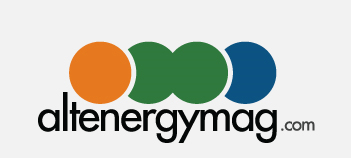Is Solar Exempt from Taxation?
 Monday, July 19, 2010 at 11:54AM
Monday, July 19, 2010 at 11:54AM When considering the value of a home for taxation purposes, should the county consider the 4.9kwh solar array on my roof in their valuation of the property? I live in Ohio.
Dear Matthew:
While we can not give you information about your specific tax status without learning more about your situation, we can say that generally speaking, increases in home value are typically accompanied by increases in property tax rates. However, most states have now enacted broad waivers that actually exempt renewable energy improvements from most property taxes.
In Ohio, exemptions to property tax exist if the solar improvements were competed during certain periods of time. So, if the solar improvement were installed between August 14, 1979 and December 31, 1985, then they would qualify for tax exempt status under O.R.C. § 5709.53.
Going forward, O.R.C. § 5727.75 exempts “qualified energy projects” that are constructed between January 1, 2009 and January 1, 2012. Under this section of the Code, a solar improvement of 250 kilowatts or less would be considered as a qualified energy project if it was completed during the required dates and meets the procedural requirements of that Section.
If you have any additional questions, or would like to speak sometime about your specific tax situation, please feel free to contact our green tax attorney anytime: tax@cleantechlawpartners.com
Legal Disclaimer: The information contained on this site is for educational and information purposes only and does not constitute legal advice or a legal opinion. Although we go to great lengths to make sure our information is accurate and useful, we make no claims, promises or guarantees about the accuracy, completeness, or adequacy of this information. The law changes very rapidly, from jurisdiction to jurisdiction, and is subject to interpretation by courts. Legal advice must be tailored to the specific circumstance of each case and, therefore we recommend you consult a lawyer if you want professional assurance that our information, and your interpretation of it, is appropriate to your particular situation. Accordingly, nothing that you read or is provided on this web site should be used as a substitute for the advice of competent legal counsel. Transmission of the information is not intended to create, and receipt does not constitute, a lawyer-client relationship between Cleantech Law Partners, LLC., the author(s), and you, and we will not be liable or responsible to you for any claim, loss, injury, liability, or damages related to your use of this site or any site linked to this site.



